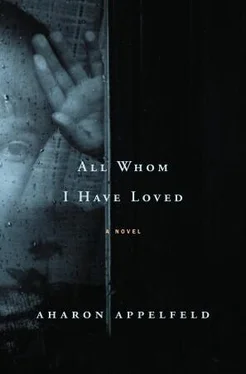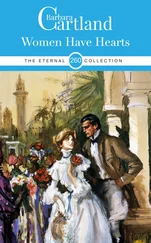“I'm sick with asthma and exempt from school,” I repeat, time and again.
“Always?”
“Always.”
The proprietress has old-fashioned manners and uses old-fashioned words. She calls me “my little sir.” Sometimes we play dominos or chess. I beat her effortlessly she immediately tells her guests, but these feats make not the slightest impression on Father.
Were it not for the rain, I would run away. I already see myself working in the home of a peasant or at a Jewish grocery store. Better to work hard than to sit here and watch Father ignore me. The thought that he's entangled with the blonde and has forgotten me drives me crazy.
My dreams have returned, and again I'm with Mother, traveling with her to Vatra Dornei, or to that hidden village not far from it. I lose her for a moment at the station but then find her quickly. She is so different from the way she looked recently, and her beauty is breathtaking. I ask her about her death and her burial at the monastery graveyard. She looks at me with that full, soft gaze that I so loved, and I understand that her death was an illusion that threatened to confuse my perceptions.
“We'll always travel to Vatra Dornei,” she says, and I immediately feel that I'm connected to her with my entire soul. The two of us are linked to those wonderful waters, which seem to have grown clearer during the time we weren't there, so that I can now see her movements under the water.
On awakening from the dream I'm dizzy, and it's hard for me to understand what is going on around me. The proprietress asks if I've slept well, and of course I do not tell her anything. Very gradually hotel guests emerge from their lairs and settle down at the long, set tables. They eat with gusto, gossiping and laughing, and naturally they talk about Father. Whenever they mention his name, my anger flares, and I feel like smashing the dishes on the table.
One evening the blonde comes over to me and says, “How are you, Paul?”
“Fine,” I reply.
“And you aren't bored?”
“No.”
It seems to me that she is about to invite me to her room. I am wrong. “The proprietress tells me that you win every game against her,” she says. “Is that so?”
“Correct.”
“You're very talented.”
I'm angry, and I say, “Apparently.”
“Like your father.”
“At least.”
She explodes into hearty laughter, bending over and exposing her large breasts.
Father is sitting on the sofa. My conversation with the blonde does not interest him. I see the circles of delirium around his eyes, and I know that he is drunk.
Later, before she disappears with Father, she says, “Good night, sweetie, we'll see you tomorrow morning.”
I wake up early, play on the floor, or read. There is a good library here, and the proprietress allows me to look through the books. I've found a book here with Father's name in it. The author showers praises on him, calling him the “Prince of Painters in a Declining Empire.” As I read that praise, Father's wretchedness grieves me all the more.
Every afternoon, when I see Father coming out of the blonde's den, I want to say, “Father, let's pack our bags and leave. Rather the rain than this disgrace. These people are cheats — even the blonde steals from you. Let's travel to Czernowitz, where we'll be among friends. The streets in Czernowitz are paved, and they aren't muddy like they are here.” I want to say all this, but I don't.
“Father!” The word escapes me.
“What?”
“When are we leaving here?”
“Soon,” he says distractedly.
The blonde flaunts all conventions of decency; she embraces and kisses Father in plain sight of everyone. I seethe with anger as the guests whisper and smirk. One evening, one of the guests provokes Father outright, calling him — in a contemptuous tone of voice—“Arthur Rosenfeld, the renowned painter.” Father takes him to task. “You shut your mouth!” he says.
Out of sheer disdain for Father, the man says, “Why should I? Why not say it: Arthur Rosenfeld, the renowned painter, has gone to live in the provinces and settled himself in the Hotel Bukovina in Campulung.”
“You shut your mouth!” Father repeats, without raising his voice. The other man apparently considers Father too drunk and woozy to touch him. He is wrong, of course. Father suddenly springs up like a lion and slugs him. Had he kept quiet, I suppose Father would have left him alone, but because he keeps goading him, Father hits him again — and hard. Chaos breaks out immediately, and a doctor is called. The blonde screams at the top of her voice, defending Father: “He is the one who provoked; he's the guilty one!”
The next day, the man who was beaten up threatens to call the police. Father does not say anything. Fortunately for us, by then the skies have cleared, and we leave the hotel without further ado.
Father had intended to return to Czernowitz immediately, but for some reason he did not. The rains ceased, and a huge sun hung in the sky. We wandered through villages, and at night we would lodge with a peasant or at a roadside inn. Father hardly spoke, but sometimes he would burst into tears — heartrending sobs that shook his entire body.
One evening he asked me if I would remember Mother.
“Very much so,” I answered immediately.
“And you'll also remember me?”
I didn't know what to say. “Why remember? You're here with me,” I replied.
The distance from village to village can be miles, and at times we found ourselves in the heart of the mountains, entirely cut off from civilization. In the hotel, my head had been full of fears; here I leaned my head on a tree trunk and fell asleep. On these endless green paths, we would chance upon peddlers, small Jewish stores, and taverns. Father spoke to the storekeepers in Yiddish. They were glad to see him and did not hide their troubles: the peasants did not pay their debts, they were attacked by wayfarers, and at night gangs would rob anyone they came across. Sometimes a storekeeper would try to keep Father from leaving, saying, “Why not sleep with us? We have two beds made up.” Once, an old Jew came up to us, placed his hands on my head, and blessed me.
The nights beneath the trees made me think of Mother, and I saw her with nothing coming between us. Father did not see anything now. His walk was a kind of thrusting forward, and I sometimes had the feeling that he was heading toward the house of that art critic who had hurt him so much, and that when he got there, he would throttle him.
One night Father muttered something about his childhood in the orphanage. When he recalled his childhood, I saw the long, chilly corridors where barefoot children would shuffle as slowly as they could, and the janitor, who stood under the light at the entrance, raising his voice, saying, “Go straight to your rooms — no hanging around!” A few years earlier Father had taken me to the orphanage and I had seen the corridors for myself. The elderly janitor had remembered Father, and they'd talked about the old days. When we left, Father had said: “He was once a strong man and we were terrified of him.”
About Mother — not a word. Sometimes a groan burst forth from within him, and I knew that Father was angry with himself. When he was upset this way, he would bite his upper lip, tighten his fists, and say, “I made a mistake.” One night he asked me something. I did not understand his question, and he repeated it. Eventually he said, “Not even you understand me.”
A few days ago a peasant showed Father a revolver he was selling. Father checked the weapon and fired a few shots, then bought it. “Now we can sleep in peace,” he said in a voice that frightened me. Sometimes I felt that the purpose of this long journey was to prepare us for our return to Czernowitz, so Father could go back to painting. From time to time he reminisced about the weeks we had spent in Bucharest and his face was filled with longing. But the reality was different. Since Mother's death, it had been hard for me to understand what Father was talking about. Once he told me: “I'm afraid of oblivion,” but he strode along like a soldier and I found it hard to keep up with him.
Читать дальше












